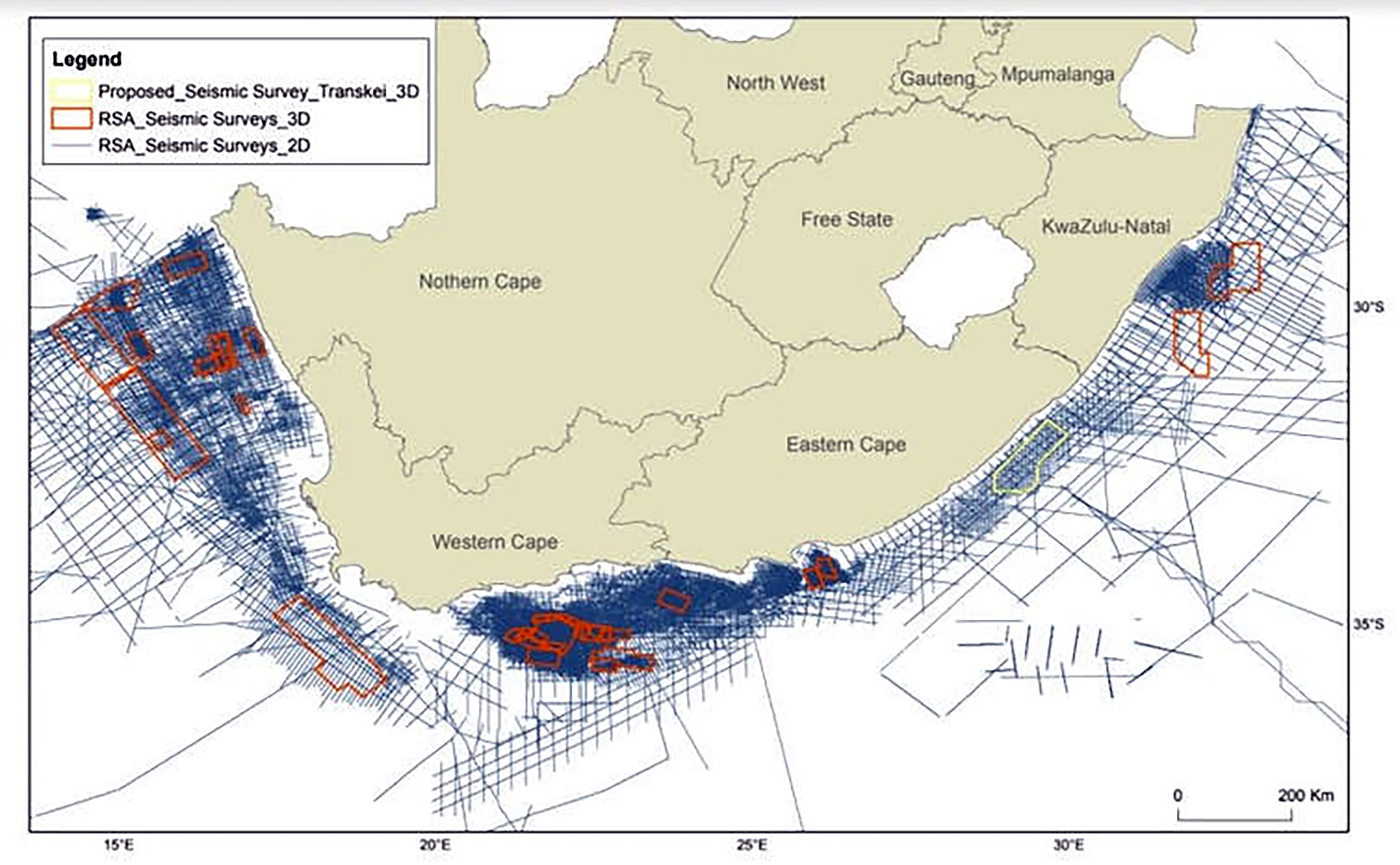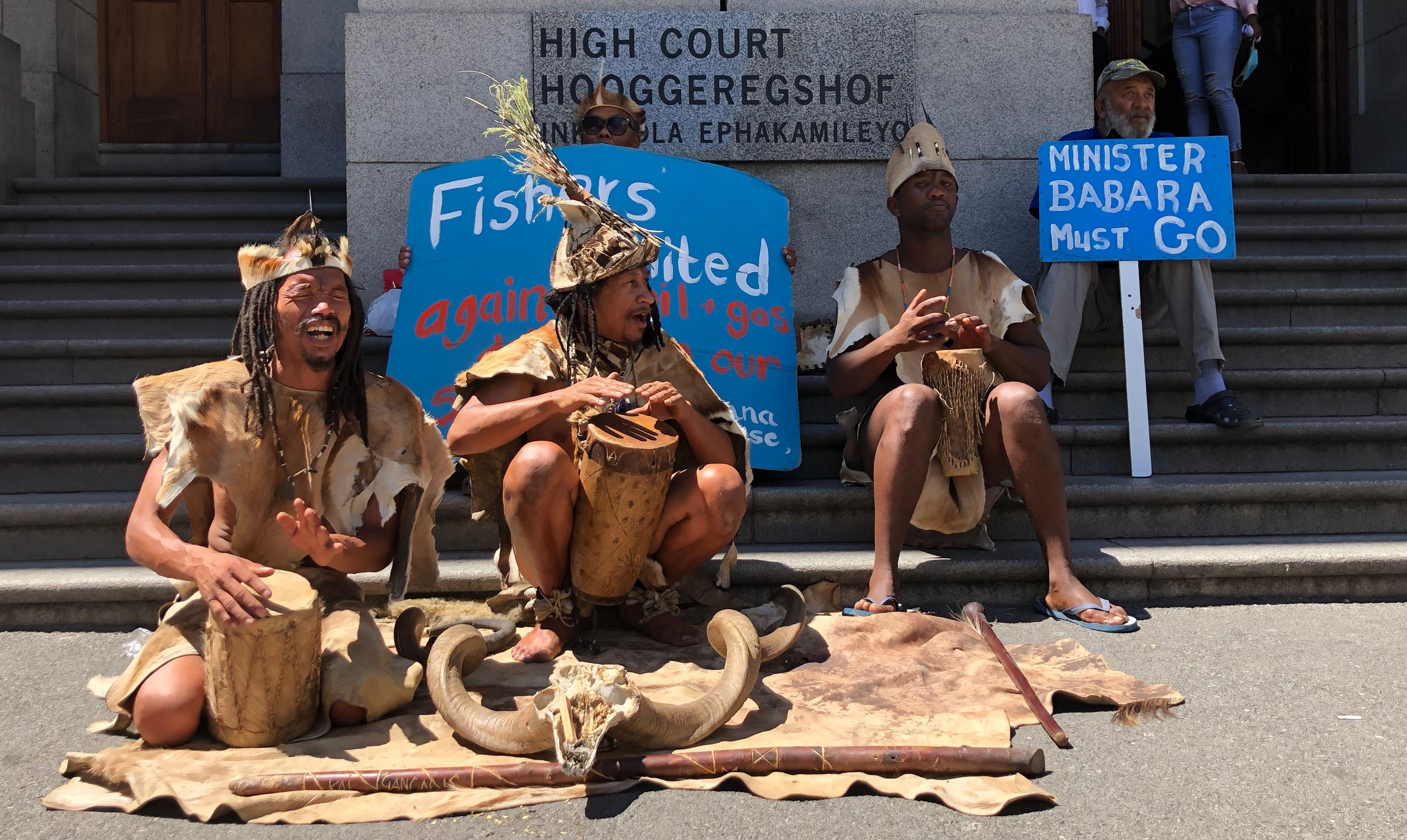An application by geoscience company Searcher Geodata to have the interim interdict on its seismic survey off the West Coast reconsidered was denied on Monday at the Western Cape High Court.
The matter was brought before Judge Daniel Thulare in a courtroom that was filled to capacity. Searcher Geodata’s counsel, Jeremy Gauntlett SC, QC, told the court that the interim interdict on the survey was costing the company $100,000 per day and could cost up to R400-million in investment if the programme is stopped.
Searcher’s ship BGP Pioneer is in international waters, Gauntlett confirmed, without stating whether any seismic surveying was being carried out.
“It is not in the territorial waters of South Africa,” Gauntlett said in response to the judge’s question of what activities the ship was conducting. He stated that the ship was outside South Africa’s marine economic zone — about 370km from the shoreline.
Last Monday, Judge Thulare ordered that all seismic surveying by Searcher Geodata in SA territorial waters be halted until the urgent interdict was heard. The judge ruled on the basis of irreparable harm to coastal communities. The application for the urgent interdict has been brought forward to 24 February.
Among Searcher Geodata’s reasons for wanting the halt on its operations to be lifted was the fact that the company failed to file its answering affidavits before the matter was heard, and had asked for an extension of time to do so.
Gauntlett argued that the lack of responding affidavits meant absence of the respondents and therefore a reconsideration of the ruling that was made in their “absence”.
 A map of proposed and past seismic surveys off the South African coast. (Source: The Conversation)
A map of proposed and past seismic surveys off the South African coast. (Source: The Conversation)
Searcher Geodata had initially requested two weeks to file its responding affidavits, as opposed to the six calendar days given by the applicants. Advocate Michael Bishop, who represented the applicants, said the delay by Searcher Geodata to file its affidavits was a failure on its part and the company should therefore face the consequences of its actions.
Bishop said that the given timelines were reasonable. “If you decide not to comply with timelines you do so at your own peril.”
The applicants, which include 13 small-scale fishing communities along the West Coast and civic organisations, had filed for an urgent interdict against Searcher Geodata’s seismic survey. They cited irreparable harm to their livelihoods and indigenous heritage and stated that a reconnaissance permit had been granted to Searcher Geodata without proper and meaningful consultation and without adherence to the correct environmental regulations.
The other respondents on the case are the minister of mineral resources and energy, the minister of forestry, fisheries and the environment, the Petroleum Agency South Africa, BGP Pioneer, Searcher Geodata UK and its Australian subsidiary.
The counsel for Searcher Geodata and its subsidiaries further argued that should the court not reconsider the interim interdict, it should then at least allow BGP Pioneer to conduct the surveying 150km from the shoreline where deep-sea trawling is permitted. Neither submission was accepted.
Gauntlett asked why the effects of seismic surveying were being questioned now, when surveys had been conducted for about 50 years.
Seismic surveys use shock wave reflections to explore underground properties. Environmentalists have raised the alarm about seismic surveys disturbing and harming marine life.
Searcher Geodata said: “We believe that the applicants’ concerns are more than adequately addressed in our answering Affidavit and the expert affidavits, all of which confirm that there is no evidence to support the allegation that seismic surveys cause irreparable harm to the environment.” DM/OBP




 A map of seismic surveying off South Africa over the years. (Source: The Conversation)
A map of seismic surveying off South Africa over the years. (Source: The Conversation) 